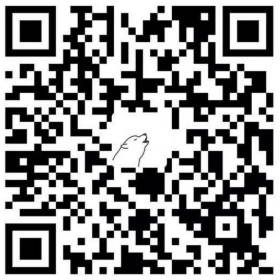英语语法-动词不定式
做主语:It + to do sth 句型
1. It + to do sth句型;it做形式主语
a. It is easier to spend money than to make money.
b. It takes time to study English well.
形式主语it不能用this或that替换
This is impossible for people to stare directly at the sun.应用it
2. 不定式置于句首做主语,谓语动词要用单数。
a. To err is human; to forgive, divine
b. To solve this problem takes a genius like Einstein.
c. To love for the sake of being loved is human, but to love for the sake of loving is angelic.
d. To send a letter is a good way to go somewhere without moving anything but your heart.
做宾语:动词 + to do
1. 直接跟在一个及物动词后面做宾语
特点一:句子的主语和不定式的逻辑主语是一致的,动作都是由主语发出。
特点二:这时句子谓语动词多是描写态度;不定式动作则说明行为。
a. I hope to see you again.
b. This company refused to cooperate with us.
c. He promised not to tell anyone about it.
接不定式做宾语的动词有
agree, appear, beg, begin, dare, decide, expect, fail, forget, happen, hate, hesitate
hope, intend, like, love, manage, mean, prefer, prepare, pretend, promise, propose
refuse, regret, remember, seem, start, swear, try, want, wish
2. 连接词引导宾语从句的简略形式:动词 + 连接代词or连接副词or连词whether + to do
a. I wonder who to invite. (= who I should invite)
b. Show us what to do. (= what we must do)
c. I don’t know whether to answer his letter. (= whether I should answer)
类似动词还有:ask, consider, decide, discover, explain, forget, find out, guess, imagine,
know, learn, observe, remember, see, tell, teach, think, understand, wonder
做宾语补足语:动词 + sb to do sth
1. 通常结构:动词 + sb to do sth
a. They don’t allow people to smoke in the theater.
b. The chairman declared the meeting to be over.
c. Allow me to drink to your success.
d. Allow me to propose a toast to our friendship.
f. My mother wishes me to return to China.
常用动词:advise, allow, ask, beg, cause, encourage, expect, forbid, force, get, help, like
order, permit, persuade, remind, teach, tell, want, warn, wish(hope不可)
2. 在let, make, have, see, hear, feel, watch, notice, listen to等动词后面,不定式做宾语补足语to要省略,改为被动语态,则必须带to(详见“不带to的不定式”)
做定语:名词 + to do sth
1. 动宾关系
被修饰名词在逻辑上做不定式的宾语
a. She has four children to take care of.
b. I had no place to live in.
c. You just regard me as a thing, an object to look at, to use, to touch, but not to listen to or to take seriously.
d. I gave the kid a comic to read.
e. He needs a place to live in.
f. I have no partner to speak English with.
g. I need a pen to write with.
h. I need a piiece of paper to write on.
注意:
1. 不定式一般不用被动形式
2. 不定式动词后面不能再加宾语
a. I gave the kid a comic to read it. *
b. I need something to eat it. *
3. 不定式动词后介词不省略
a. I have no partner to speak English. *
b. I need a pen to write. *
2. 被only, last, next, 序数词, 最高级修饰的名词通常用不定式做定语
a. I don’t think he is the best man to do the job.
b. The next train to arrive is from New York.
c. Clint was the second person to fall into this trap.
d. Clint was the only person to survive the air crash.
做独立成分
修饰整个句子: to begin with, to tell the truth, to make a long story short, so to speak, to be brief/exaact/frank/honest, to say nothing of(姑且不所说), to say the least(至少可以这么说)
a. To begin with, on behalf of (代表)all of your American guests, I wish to thank you for the incomparable hospitality.
b. I have a point there, to say the least.
c. To make a long story short, he is in hospital now.
做状语:目的在状语 and 结果状语
1.做目的状语
a. Hating people is like burning down your own house to get rid of a rat.
b. To avoid criticsim, do nothing, say nothing, be nothing.
c. To acquire knowledge, one must study; but to acquire wisdom, one must observe.
d. We had better start early to catch the train.
e. I went to the post office to mail a letter.
可以用in order to do 或 so as to do 强调目的状语
a. We had better start early so as to catch the train.
b. I went to the post office in order to mail a letter.
c. I quote others in order to better express my own self.
d. The teacher raised her voice in order for us to hear more clearly.
注意:so as to不放在句首;to do和in order to do可以放句首。
2.做结果状语
1. 直接做结果状语
a. He lived to be a hundred years.
b. What have I done to offend you?
c. He lived to see second world war.(= he lived until he saw world war II)
2. never to do表结果
a. John left his hometown ten years ago, never to return.
b. We parted never to see each other.
3. only to do引出意想不到或不愉快的结果
a. We hurried to the railway station, only to find the train had just left.
b. All too often, women complain that they’re educated as equals, only to go out into the workforce to be treated as inferiors.
c. He worked very hard, only to find he had not finished half of the job.
4. enough to
a. He is not old enough to go to school.
b. The teacher speaks loudly enough to make himself heard clearly.
5. too…to结构:太…而不能
a. The box is too heavy for me to even move.
b. The tea is too hot to drink.
形容词后的不定式
1. 句子主语和不定式可以构成逻辑上的主谓关系
这类形容词通常表示人的性格特征或行为表现
brave, careful, careless, clever, considerate, cruel, foolish, generous, kind, modest, nice
polite, rude, selfish, silly, stupid, thoughtful.
a. He was surprised to learn how much he had spent.
b. The boy was careless to break the window.
2. 句子主语和不定式构成逻辑上的动宾关系
a. She is interesting to listen to = It is interesting to listen to her.
b. Relativity theory isn’t easy to understand = it isn’t easy to understand relativity theory.
c. She is very nice to talk to = It is very nice to talk to her.
d. Mary is easy to get on with = It is easy to get on with Mary.
e. English is difficult to speak.
f. Football is very interesting to watch.
g. Barbara is interesting to listen to because she reads a lot.
在动宾关系的情况需要注意:
1)不定式动词不用被动式(最容易出错)
a. English is difficult to be spoken
b. Football is interesting to be watched
2)不定式后不加宾语
a. Football is very interesting to watch it
b. She is nice to talk to her
3)不定式动词所带介词不能省略
a. She is interesting to listen
b. She is easy to get on
● It’s impossble for fish to live without water.
● it’s necessary for students to do more exercise in learning English.
● The boy was made to sing the song once again.
● He couldn’t help bursting into tears after he heard the news.
● She could not but admit that they were justified in this
● They forbade him to go to the park
● The first explorer to reach California by land was Strong Smith, a trapper who crossed the southwestern deserts of the United States in 1826
● He was the first to arrive and the last to leave
● The teachers don’t know what it takes to start and run a school.
不带to的不定式
动词的复合宾语中to省去
1. 感觉动词:see, hear, watch, notice, feel, observe
2. 使役动词:let, make, have
a. The teacher has us write a composition every week.
b. I saw a man enter the shop.
但为被动结构时,后面需要 + to
a. A man was seen to enter the shop.
一些短语中to省略
had better, would rather, would sooner, would just a soon, might(just) as well, cannot but
cannot choose but, cannot help but
a. I cannot but admire his courage.
b. We might as well put up here for tonight.
c. I couldn’t help but fall in love with you.
do nothing/anything/everything but do省略
a. I have nothing to do but wait.
b. I have no choice but to wait(but前没有do,则不定式 + to)
c. He needs nothing but to succeed.
d. He will do anything but give in
在解释do的精确含义的名词从句和定语从句做主语的句子中,be动词后直接 + do
e. All that I could do then was wait.
f. What I could do then was wait.
g. All you do now is complete this form.
h. No mountains too high for you to climb. All you have to do is have some climbing faith.
g. No rivers too wide for you to make it across. All you have to do is believe it when you pray.
英语学习-语法系列github仓库,欢迎收藏star
参考文章:
参考链接
1.英语语法-基本语法
2.英语语法-句子类型
3.英语语法-状语从句
4.英语语法-形容词adjective
5.英语语法-限定词2
6.英语语法-限定词1
7.英语语法-完成时
8.英语语法-完成进行时






